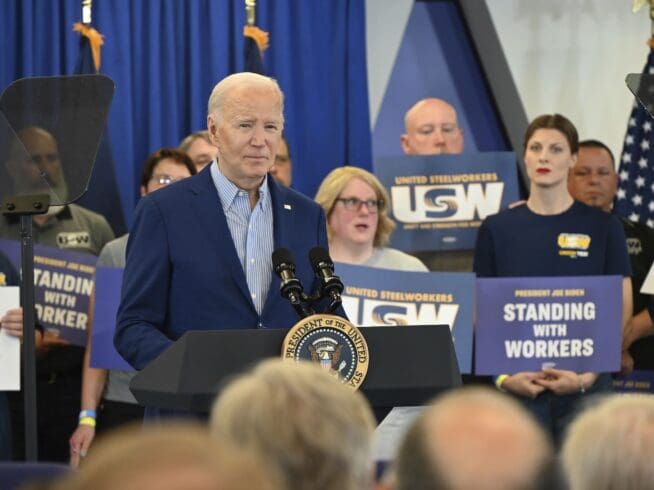Republicans double down on 15-week abortion ban despite Tuesday’s election defeats
Republican National Committee Chair Ronna McDaniel claims there is consensus around the unpopular policy

On Tuesday, voters across the country signaled their support for reproductive rights and their opposition to Republican plans to implement abortion bans. A day later, Republican leaders vowed to continue pushing for those bans anyway.
Virginia Republican Gov. Glenn Youngkin asked voters to elect Republican majorities to the Senate and House of Delegates so they could pass a statewide ban on abortion after 15 weeks with a few exceptions. Youngkin and his team spent more than $1 million trying to convince voters that his plan was a “commonsense position that most Virginians support too” and not really a ban. They framed it as a model approach for Republicans nationally.
Voters responded by keeping a Democratic Senate majority and giving Democrats control of the House too. Polls in Virginia and nationally have shown that a majority of the public believes abortion should be legal in most or all circumstances and that they do not want bans.
Ohioans overwhelmingly approved a state constitutional amendment guaranteeing reproductive rights. Kentucky voters reelected Democratic Gov. Andy Beshear, who ran ads attacking his opponent’s anti-abortion positions. Pennsylvanians elected Democratic nominee Daniel McCaffery to the state Supreme Court after a race largely focused on abortion rights.
Republican leaders showed on Wednesday that they plan to ignore the results and continue to push for abortion bans like the ones voters rejected.
“We have to come to a consensus as a country that there should be exceptions, that we should have a limitation when we know a baby feels pain and ask the Democrats to meet us there,” Republican National Committee Chair Ronna McDaniel told NBC News. “Democrats still believe in gender-selected abortions. They still believe in abortions well past 30 weeks. I think most people don’t think that makes sense. So ask the Democrats: Come with us. Leave that extreme position and come to a consensus position where most of Europe is, 47 out of 50 countries, that when a baby feels pain, we should have limitations.” She falsely claimed that that is at around 15 weeks.
McDaniel is wrong about Europe: Only five countries have highly restrictive 15-week bans, and many have moved in recent years to loosen restrictions rather than implement them.
During Wednesday’s Republican presidential debate, candidates continued to advocate for a national abortion ban.
“I would certainly as president of the United States have a 15-week national limit,“ said South Carolina Sen. Tim Scott. “We need a 15-week federal limit. Three out of four Americans agree with a 15-week limit. Forty-seven out of 50 countries in Europe agree with a 15-week limit.”
Former South Carolina Gov. Nikki Haley noted that states make their own decisions. She said that without 60 Senate votes, a national ban would be impossible, but added, “I would support anything that would pass because that’s what would save more babies and support more moms.”
And even after 57% of Ohio voters on Tuesday approved a constitutional amendment protecting the right to choose an abortion in nearly all cases, state Republican leaders made it clear they would not respect the will of their constituents.
“The national abortion industry funded by wealthy out-of-state special interests spent millions to pass this radical language that goes far past abortion on demand,” said state Senate President Matt Huffman. “This isn’t the end. It is really just the beginning of a revolving door of ballot campaigns to repeal or replace Issue 1.”
According to Ohio journalist Karen Kasler, state House Speaker Jason Stephens said: “The legislature has multiple paths that we will explore to continue to protect innocent life. This is not the end of the conversation.”




